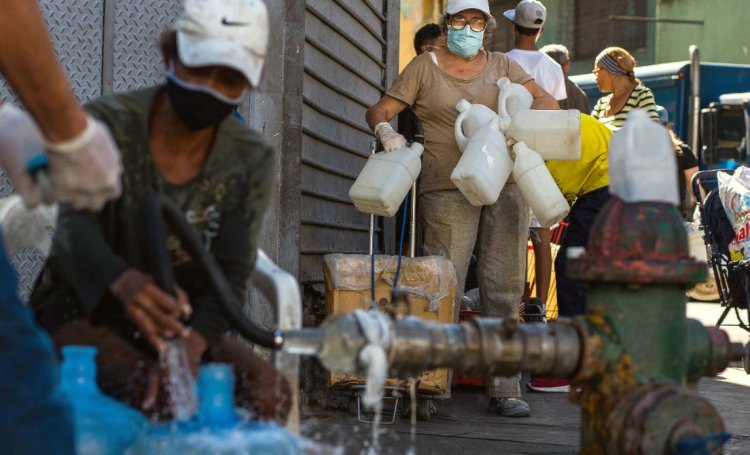UN Experts Warn US Deportation of Venezuelan Dissidents Would Breach International Law
The UN experts highlighted that deporting the men would violate the principle of non-refoulement, a cornerstone of international refugee and human rights law.

United Nations human rights experts have issued a strong warning to the United States over its plans to deport four Venezuelan exiles, stating that such actions would constitute serious violations of international human rights and refugee law.
The individuals at risk are Dehivis David Olivo Hernández, Gregory José Sanabria Tarazona, Teobaldo Antonio León, and Wilmer Alexander García Vallenilla. All four are political dissidents and one a recognized human rights defender who fled Venezuela seeking protection. The experts stressed that their forced return would expose them to grave dangers, including torture, enforced disappearance, arbitrary detention, persecution, and other serious human rights abuses.
Risk of Refoulement
The UN experts highlighted that deporting the men would violate the principle of non-refoulement, a cornerstone of international refugee and human rights law. This principle prohibits the transfer of individuals to any country where they face a foreseeable risk of torture, persecution, or arbitrary execution.
Notably, the experts underscored that this protection applies regardless of a person’s immigration status or nationality, emphasizing that international law binds all states to uphold these obligations.
US Allegations Under Scrutiny
The US Government has claimed that the four Venezuelans are connected to the Tren de Aragua, a Venezuelan criminal group recently designated by Washington as a terrorist organization. Authorities argue that this affiliation justifies deportation under the Alien Enemies Act, which permits expedited removals when the US deems a group to be engaged in hostile activities on behalf of a foreign power.
However, the UN experts sharply criticized the lack of evidence supporting these allegations. They cautioned that wrongful association with Tren de Aragua appears to have been used to strip the individuals of their rights to due process and protection under international law.
Documented Torture and Ongoing Risks
At least two of the four men have already suffered torture at the hands of Venezuelan authorities prior to their exile. This history of abuse, combined with their known political activities and human rights work, places them at heightened risk of retaliation if deported.
The UN experts warned that return to Venezuela could mean prolonged imprisonment, further torture, or even disappearance, noting the country’s well-documented record of political persecution under the current government.
Concerns Over Arbitrary Detention in the US
Equally troubling are the circumstances of their current detention. According to reports, the four were apprehended during routine immigration check-ins or court appearances without prior notice. They were allegedly denied meaningful access to legal representation and the opportunity to challenge their deportations, raising concerns about due process violations within the United States.
The experts stressed that individualized risk assessments are essential before any deportation decisions are made, and that blanket or politically motivated removals undermine international legal obligations.
International Legal Obligations
As a state party to the International Covenant on Civil and Political Rights (ICCPR) and the Convention Against Torture, the United States is bound to prevent any action that could expose individuals to persecution or ill-treatment abroad. Furthermore, customary international law also obligates states to protect individuals from refoulement, regardless of domestic security claims.
The UN experts insisted that the United States must:
-
Immediately halt the deportations,
-
Conduct proper, case-by-case assessments,
-
Ensure access to legal remedies and due process,
-
Refrain from arbitrary detention practices in immigration enforcement.
Venezuela’s Responsibility
The experts also called upon Venezuela to uphold its international obligations should the men be returned. The government must guarantee their safety and refrain from reprisals against them or their families, including arbitrary detention or prosecution linked to their past activism.
Additionally, Venezuelan authorities were urged to independently investigate all allegations of torture and human rights abuses and to provide victims with effective remedies.
A Call for International Oversight
This case highlights a growing global concern: the weaponization of counter-terrorism and national security narratives to suppress dissidents and silence human rights defenders. The UN’s intervention underscores the need for international oversight, particularly in cases where governments invoke broad claims of “terrorism” to override long-standing human rights protections.
As the deportation looms, the fate of these four Venezuelan exiles remains uncertain. The UN experts’ appeal represents not only a plea for their protection but also a reminder of the universal and non-derogable principles that underpin international human rights law.
ALSO READ
Australia's Controversial Deportation Deal with Nauru: A Human Rights Dilemma
Federal Judge Halts Expedited Deportation Expansion
UN Experts Urge Pakistan to Halt Deportations of Afghans Amid Humanitarian Risks
Judge Blocks Expansion of Expedited Deportations
Rwanda's Role in U.S. Migrant Deportations Agreement










